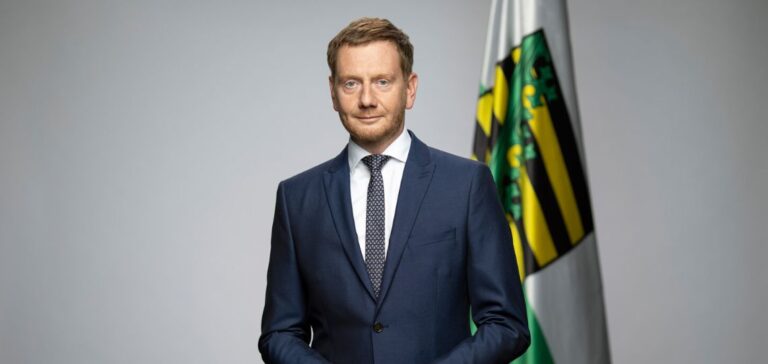Michael Kretschmer, Minister-President of the regional state of Saxony and a prominent figure of the Christian Democratic Union (CDU), stated that it would be appropriate to engage with Russia on a possible reactivation of the Nord Stream 2 pipeline. Although completed in 2021, the project has never entered into operation due to political tensions linked to the invasion of Ukraine. In an interview published by Die Zeit, he described the pipeline as a “possible opening for dialogue” with Moscow.
A technical project with political weight
Nord Stream 2 (NS2), a twin pipeline to Nord Stream 1, connects Russia to Germany through the Baltic Sea. While both lines were physically completed, only one appears to have remained intact after the unexplained explosions in September 2022. NS2 never received the necessary operating licence from German authorities. At the time, the federal government froze the certification process, criticising the geopolitical role of Russian gas in the conflict with Ukraine.
Despite this freeze, several media outlets have recently reported speculation over a partial reactivation if diplomatic ties between Moscow and Washington were to shift under a new U.S. administration.
Criticism of the current government stance
Michael Kretschmer criticised Berlin’s current policy, stating that “as long as we continue to say we want nothing, that we are merely enforcing sanctions, there will be no reason to speak with us.” He believes such a posture blocks any chance of structured dialogue and closes the door to pragmatic solutions in a strained economic context.
According to him, activating NS2 could also help reduce energy costs weighing on the German economy. He nevertheless acknowledged that most federal-level political decision-makers do not share this perspective.
Internal divisions and unchanged official stance
Chancellor Friedrich Merz, also a member of the CDU, recently reiterated that Nord Stream 2 “currently has no operating licence, and that will not change.” This statement highlights internal disagreements within the conservative party.
The renewed debate around NS2 may raise questions about the coherence of Germany’s energy strategy, particularly in light of diverging interests between the central government and certain heavily industrialised Länder.






















